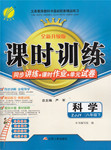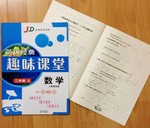题目内容
______ in the training, Marbury couldn't play in the basketball season.
A. Injuring B. Injure
C. Injured D. To injure
练习册系列答案
 课时训练江苏人民出版社系列答案
课时训练江苏人民出版社系列答案 黄冈经典趣味课堂系列答案
黄冈经典趣味课堂系列答案
相关题目
题目内容
______ in the training, Marbury couldn't play in the basketball season.
A. Injuring B. Injure
C. Injured D. To injure
 课时训练江苏人民出版社系列答案
课时训练江苏人民出版社系列答案 黄冈经典趣味课堂系列答案
黄冈经典趣味课堂系列答案